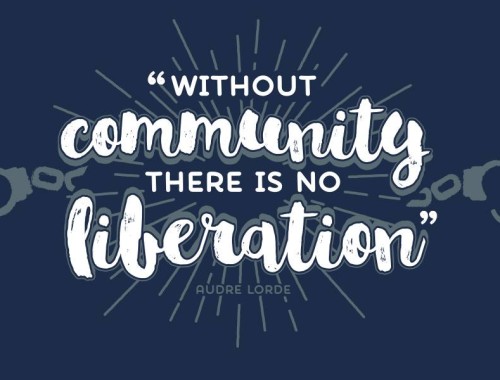Part of the reason why I chose to be an education major was that my college was famous– in conservative evangelical circles, at least– as being one of the best colleges for a teaching degree. The school prides itself on churning out high-quality teachers. This wasn’t even implied– it was directly stated by many of my education professors, and in nearly every symposium I had to attend, the speaker would tell us that we would go out into the Christian K-12 world and be without equal.
Part of the reason they were so arrogant about their program was that they believed in the “traditional” or “teacher-centered” model. In all of my classes, I was assigned books and articles to read that were “student-centered” or “progressive” and told to find everything that was “wrong” with that method. The bulk of my education classes was dedicated to teaching me how to be a dictator. I was told my students were the enemy, that I was essentially a combatant, fighting against the natural inclinations of those little hellions. My students were not to be my friends– I was there to teach them, and that was it. You do not talk about any of your personal experiences, you do not ever share anything from your personal life, and you do not ask about theirs. The only thing you need to know, as their teacher, is what their classroom performance is like.
I finished my nightmarish student internship, graduated, and ended up a graduate assistant for Liberty University.
When I showed up on campus a few weeks before the start of the school year, I was enrolled in a course intended to give the graduate assistants a helpful boost– many of us were coming from English or writing programs,but not me. I walked into that classroom on the first day believing that I had this in the bag. I was an education major. I’d graduated from one of the best education programs in the country.
I could not have been more wrong, but it took me a long time to figure that out. Now, when I look back at my behavior and attitude in that classroom– and throughout that first semester– all I can do is cringe. I want to run into that room, slap my hand over my mouth, and starting shouting “don’t listen to her! She has no idea what she’s saying! She’s going to change her mind in like four months, it’ll be ok!”
There were many things I struggled with during that course– but, in the end, everything I struggled with so violently all comes back to how I’d been taught to view my students: they were the enemy, and that was the only way I had for thinking about them. My education had completely dehumanized “student.” The way my professors talked about these children . . . words like monster, hellion, and demon were all common. I was told that the only way students can learn is if they fear you first. “Love is the highest motivator,” they would say, “but fear is where you have to begin. If they are not afraid of you, then you need to make sure they are, or you won’t get anything accomplished.”
I was Jane Andrews, from Anne of Avonlea, confidently telling Anne “If my pupils won’t do as I tell them I shall punish them . . . Give them a good whipping, of course.”
During those weeks, I was constantly being challenged by many of my classmates, and by the reading assignments. The first time that my professor handed out an article from the Chronicle of Higher Education, I had to fight the compulsion I felt to burn it. He talked so much about the basic need for teachers to love their students, and as amazing as all of that sounded, I didn’t know what that was supposed to look like in practice. How did I love– while needing absolute control over my classroom? Over my students?
When one of my classmates got up to deliver a presentation, I could barely keep the inner scoffer and the outer eye-rolls at bay. Amber* was passionate about her area of study. She was a linguistics major, and desperate to get to China to be an ESL teacher. She’d spent her entire college career bent on that, and consequently was one of the most informed women I’d ever met. Each of us had to give a presentation on something we could encounter as ENGL 101 teachers, and she chose ESL students. For almost half an hour she talked about the specific challenges that ESL students face as college students in a writing course, and what we could do to help them. She emphasized the need for us to go above-and-beyond for our ESL students, that they need us in a way native English speakers don’t.
And that’s when the eye-rolling started.
Because, I’d been taught that you “teach to the middle,” and if students fall behind, welp, that’s not your problem. If they need help, they can find it– through tutors, whatever. It certainly wasn’t something I had the time to think or worry about.
I listened to her anyway– disagreeing with her the entire time, convinced that she was wrong and that she would change her mind the second she entered an actual classroom– but I listened. And I continued listening to her over the few weeks we had left. I started to hear something in her voice. It wasn’t just passion– it was love. She was brimming with all the love she felt for her someday students. Listening to her talk was like hearing her pull children into her arms and do everything she could to help them. Listening to her made me feel like that’s what listening to Jesus could be like.
She loved.
And it was hard to ignore.
Hearing her, and then watching her, getting to know her . . . it slowly undid a lot of the damaging things I’d been taught. Over time, I grew to respect her. She became, over the next few years, what I tried to envision for myself when I thought of myself as teacher.
So, the first time I had an ESL student in my class, she was the first person I went to. I asked for her help, and she treated me with the exact same love I’d felt from her in class. She helped me with materials and resources, helped me get my feet under me. When I had questions, I went to her, and she would help me figure out a way to help my student. Love is patient, love is kind, and she exemplified that to me every day. Knowing her gave me the passion I needed– the bone-deep conviction– that I had to help this young man. He wasn’t going to fall through the cracks– not on my watch. It actually became one of the best creative outlets I had that semester; I became obsessed with figuring out ways to help him develop the intuition English speakers have. We tried short stories, and graphic novels, comic books, and he ate it all up. Sometimes he just came to my office for the conversation.
I learned to love my students, and it was through loving them that I was able to see them as people– people with needs, dreams, struggles. I could ask the question “hey, is something going on? Do you need some help?” and have my Browning-logo sporting, camo-wearing student break down into tears– and then become one of the best students in that class.
It’s a lesson I’m trying to extend to more than just my students.


